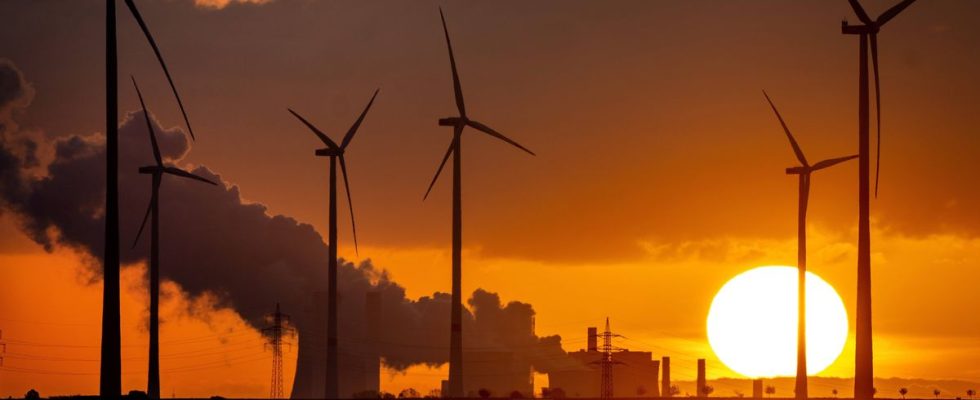When you don’t believe in astrology, in questioning or in good resolutions, the first week of the year can quickly take on the familiar taste of all those that follow: routine. With, it must still be recognized, a practical side: it allows you to take stock of the past year. In Germany, the first days of 2024 brought their share of encouraging news. Europe’s leading industrial powerhouse posted a CO2 emissions rate of 673 million tonnes in 2023, its lowest level since the 1950s, according to a study by the Agora Energiewende expert group.
What is there to rejoice about in a successful ecological transition? It’s not time for celebration yet, temper Camille Defard, head of the energy center at the Jacques-Delors Institute. “The report makes a more nuanced observation. It is shown that the origin of the drop in emissions is only 15% due to ecological policies (deployment of renewable energies, energy efficiency, sobriety). A large part of the decline can be attributed to a fall in electricity demand from energy-intensive industries. »
A delicate year 2022 marked by dependence on Russian gas
Another reason for this drop in CO2, according to the group of experts: a “sharp reduction in electricity production from coal”. With a declared political will to close coal-fired power stations in 2038, Berlin has lowered its sail: the share of fuel fell to 26% last year compared to 36% in 2022. “Reduce coal consumption then close nuclear reactors would have been a better solution from a carbon point of view, judges our expert. But the Germans have made real efforts to reduce production. Wind energy produces more than coal, the curves are crossing. »
An economic situation which is returning to a positive spiral, after a year 2022 made delicate by the outbreak of war in Ukraine and Russian dependence. “Berlin had to increase its coal production to cope, it’s a year to put on hold,” recalls Jacques-Pierre Gougeonuniversity professor, director of Germany’s Iris Observatory and author of the book Germany, a challenge for Europe (Éditions Eyrolles), to be published this month.
For the expert, Berlin’s good results are the fruit of political will: “the concept of a social and ecological economy was a priority of the ruling coalition in 2021. The analysis of political personnel is to say that such results could not have been achieved without federal intervention. »
“Two sectors are unable to reduce their emissions in Germany and France”
Certainly, Germany imported more electricity in 2023. But for the first time in its history, the European giant produced more than half of its electricity needs from renewable energies (55%). A rise in power with an ambitious objective of obtaining 80% electricity from renewable sources in 2030, and a roadmap from which France could draw inspiration, according to Camille Defar. “Germany has managed to develop solar and wind power in a very short time. This shows that this massive deployment is possible, profitable, and good for the country’s energy security. »
“By 2032, each Land must devote at least 2% of its surface area to wind turbines, compared to around 0.5% before. The battle plan is very ambitious, the country will have to maintain its acceleration,” projects, for his part, Jacques-Pierre Gougeon.
But focusing on renewable energy should not distract Berlin from other polluting projects, less publicized than coal. “Two sectors are unable to reduce their emissions in Germany and France: transport, where emissions are increasing, and construction, where emissions are stagnating,” recalls Camille Defard. “We are on the right path,” said Green Vice-Chancellor Robert Habeck. The scaffolding is piling up, but the construction of the transition is taking shape.

